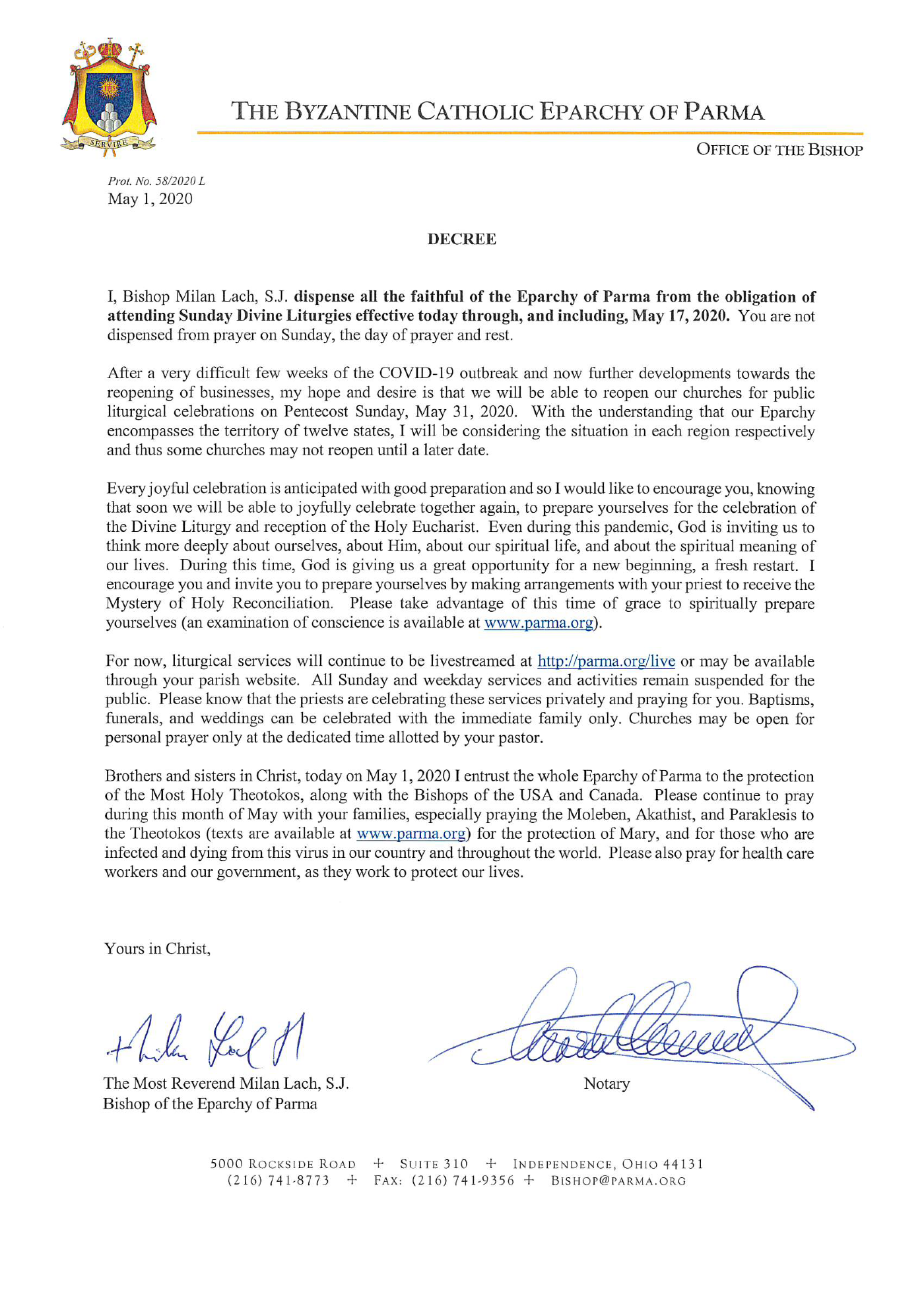Decree – Extension of Dispensation from Sunday Obligation

This service will stream on our YouTube channel on Tuesday, April 28th, at 9am
Pascha Week 3 First Hour Propers
Divine Liturgy
Friday – 6:30 PM (If No Vespers)
Sunday – 9:00 AM (Livestreamed)
Vespers
Friday – 6:30 PM (If No Liturgy)
Saturday – 4:00 PM
Parish Address:
4141 Laurence Ave, Allen Park, MI 48101
